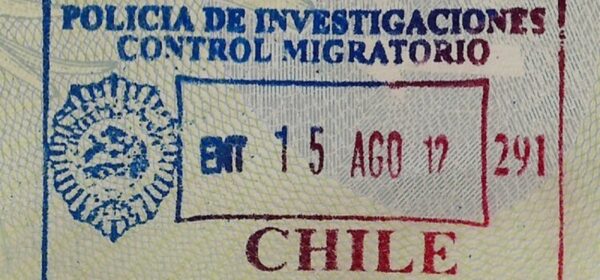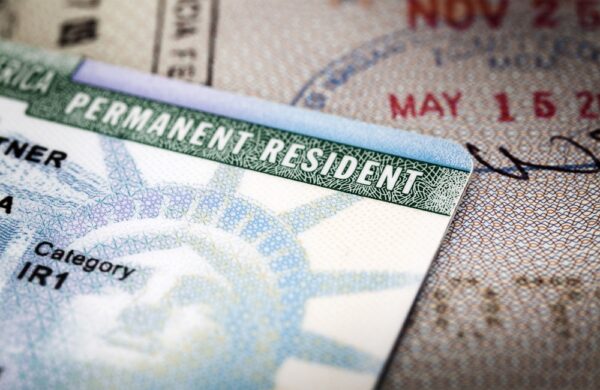Immigrating to a new country doesn’t feel complete until you get official permanent residency. In most countries, permanent residents enjoy the same opportunities as citizens with little or no restrictions. For instance, permanent residency in Spain is more or less equal to Spanish citizenship as you get to work, study, and live there indefinitely. Generally, to attain this status legally, you must migrate into the country with a different visa. As easy as this sounds, many applications get rejected annually for good reasons. So, if you’re interested in Spanish permanent residency, it is vital to know the eligibility requirements and secrets to a successful application. Let’s get started.
Benefits of Permanent Residency in Spain
Spain offers a lively and vivid culture, numerous historical sites of interest, incredible cuisine, and an immigrant-friendly job market. For these reasons, the country is among the most popular immigrant destinations. While various eligible residence visas let holders work or study in Spain temporarily until they expire, permanent residents enjoy a lot more freedom.
These benefits include access to an excellent healthcare system, a reasonable cost of living, social benefits, and lovely living neighborhoods. Also, Permanent residents can vote in general elections and have a smoother pathway to citizenship. However, they cannot contest or be appointed to government positions unless they attain citizenship. Lastly, you may have to renounce your other citizenships to become a Spanish citizen in most cases.
How to Get Permanent Residency in Spain
Generally, non-EU citizens must spend at least five years in Spain on a temporary visa to be eligible for permanent residency. The Spanish immigration office has set up visa programs for foreign nationals looking to live and work in the country temporarily. Since these visas have temporary residence permits, often valid for between one and three years, you may need to renew them several times to reach the required long-term residency of five years. So, you must carefully calculate your stay period to ensure it is up to a minimum and provide proof when submitting your application.
Furthermore, if you entered the country on a student visa. Reckon that student visas are only valid for 50% of the total duration. So, a four-year student visa only amounts to two years in your PR/citizenship eligibility assessment. You can obtain a certificado de residencia from the Spanish police, specifying the exact number of years you have lived in Spain.
Additionally, EU nationals and citizens of European countries with special trade and border agreements with Spain have peculiar channels for obtaining their PR permits. For instance, EU nationals take advantage of the EU Blue Card Network.
The EU Blue Card Network For EU Nationals
EU citizens with an EU Blue Card only need to live in Spain for two years to become permanent residents. This EU Blue Card is applicable in place of a valid passport, proof, and ID in your application. You can also use an EU Blue Card obtained from another European Union member state.
Applying for A Permanent Residence Permit
Permanent Residency in Spain is relatively easy to obtain, but there are still a few hurdles to jump through. The Spanish National Ministry of Interior oversees immigration services in the country. However, you are more likely to deal with your local police station while applying for permanent residency from within the country. If you are eligible, you must submit your application to the police, who will, in turn, forward it to the Ministry of Interior for processing.
To apply, you simply need to pick up and fill out the application form, gather the necessary documents, and submit them to a relevant police station in Spain. In some cases, however, you may be able to go directly to a Spanish immigration office. Importantly, endeavor to apply for permanent residency about three months before your current visa or permit expires.
When submitting your application, you must provide proof that you meet all eligibility criteria for a permanent residency card. Some requirements are peculiar to specific visas, while most are general for every applicant. Let’s check them out.
Requirements for The PR Application
The most common requirements for your permanent residency application are as follows:
1. Residence Certificate and NIE
Every non-EU national in Spain must have an NIE (Foreigner Identity Number) to stay in the country for more than six months. Therefore, you must have an NIE to have legally lived in Spain for five years. Also, a residence certificate is compulsory for foreigners residing in Spain. It is one of the vital requirements for your permanent residence application.
2. Valid Passport
3. EU Blue Card (if applicable)
4. Proof that you have adequate income or financial resources like employment contracts.
5. Proof you have a valid health insurance or medical certificate in Spain.
6. The permanent residence application form (EX-17 form)
7. Proof of residence in Spain, such as a rental contract.
8. Proof that you have legally lived in Spain for five years, such as bank statements, payrolls, or tax returns.
9. Divorce or marriage certificates (if applicable)
10. Sometimes, you may also need to show criminal record certificates from Spain or your home country.
Permanent Residency Application Fees in Spain
Applying for permanent residency in Spain is more affordable than in most countries. The application fee is only €80. However, some documents needed for the application may bring in extra costs. For instance, you may have to pay for translations if your documents are not in Spanish. In most cases, these extra costs will not go beyond €20. You may have to submit evidence of payment for the application fee.
What to Do After You Apply
After you submit your application, you can expect to receive feedback, which typically arrives in less than a month. If your application is accepted, an official notification will be sent to you. Following this, you will need to visit the local police station to provide your fingerprints and finalize the application process. Subsequently, within a month, you can return to collect your permanent resident card.
How to Handle a Rejected Application
Regrettably, certain requests for permanent residency in Spain are denied. Nevertheless, if this occurs, you will receive an explanation for the rejection, and there may be an opportunity to contest the decision. Should you wish to appeal, you have the option to do so at the High Court of Justice in Madrid. You must initiate the appeal process within two months of receiving the refusal.
Permanent Residence Permit Renewal
After you become a permanent resident of Spain, your residency card remains valid for a period of five years. Following this duration, you have the option to easily extend the validity of your card for an additional five years. All you need to do is complete another EX-17 form, provide evidence of your address, and present your original residency card along with your passport. Subsequently, you must re-submit your fingerprints and settle the renewal fee.
It is worth noting that renewing your permanent resident status in Spain does not mandate that you have been residing in the country for the entire five-year period. This requirement solely pertains to when you seek permanent residency for the first time. Nevertheless, to renew your status, you mustn't spend more than a full year outside of Spain or the EU.
How to Preserve Permanent Residence Rights in Spain
Attaining permanent residency in Spain is one thing, but maintaining it is another. In general, once you become a permanent resident, you should not continuously stay outside of Spain for more than one year. Furthermore, your total time away from Spain should not exceed 30 months during five years. If you exceed the allowable time away from Spain, there's a risk of losing your permanent resident status. If this occurs, it is feasible to restore your residency status, although you may need to fulfill additional requirements.
Conclusion
In terms of culture, quality of life, and opportunities, Spain ranks among the top countries worldwide. As a result, many immigrants apply to become official permanent residents in the country. We have highlighted all there is to know on how to get permanent residency in Spain. We’re dedicated to helping our readers prepare applications that are difficult to reject. Let us know what you think in the comments.
















